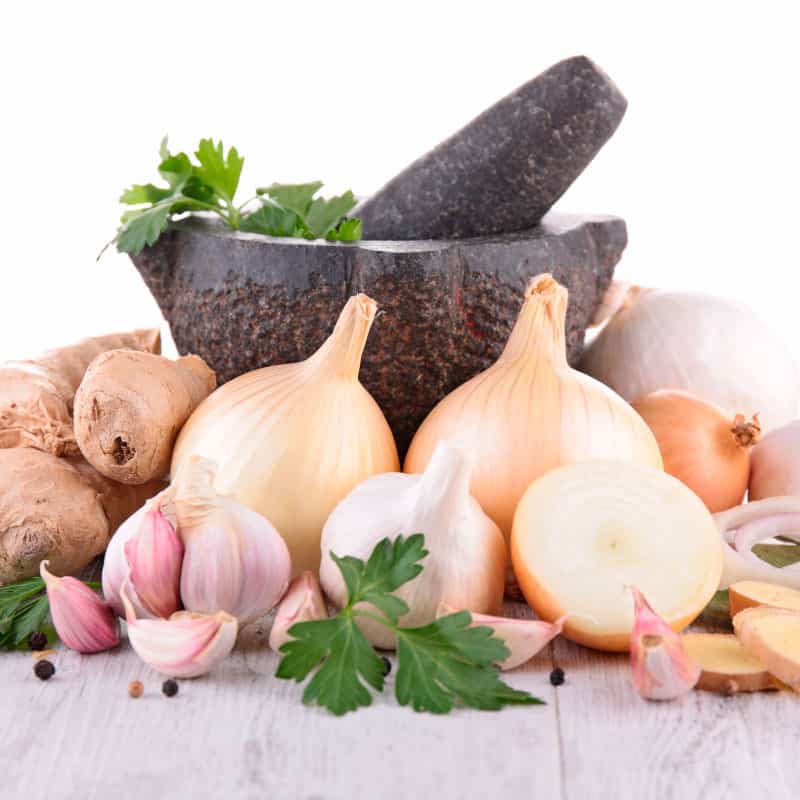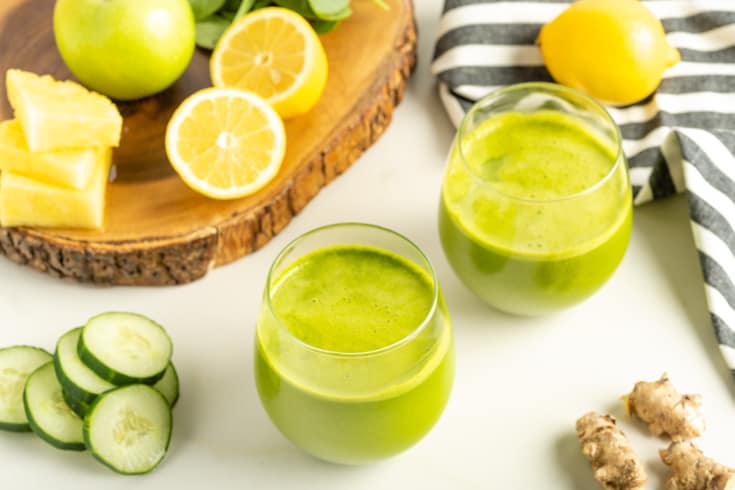This Dr. Axe content is medically reviewed or fact checked to ensure factually accurate information.
With strict editorial sourcing guidelines, we only link to academic research institutions, reputable media sites and, when research is available, medically peer-reviewed studies. Note that the numbers in parentheses (1, 2, etc.) are clickable links to these studies.
The information in our articles is NOT intended to replace a one-on-one relationship with a qualified health care professional and is not intended as medical advice.
This article is based on scientific evidence, written by experts and fact checked by our trained editorial staff. Note that the numbers in parentheses (1, 2, etc.) are clickable links to medically peer-reviewed studies.
Our team includes licensed nutritionists and dietitians, certified health education specialists, as well as certified strength and conditioning specialists, personal trainers and corrective exercise specialists. Our team aims to be not only thorough with its research, but also objective and unbiased.
The information in our articles is NOT intended to replace a one-on-one relationship with a qualified health care professional and is not intended as medical advice.
Natural Cold Remedies for Fast Relief (& Prevention)
October 8, 2024

You can get a cold any time of year, but common cold season really ramps up when the weather starts to turn cool. And the thing about the common cold is that it is, well, common, leading many people to search for natural cold remedies.
The good news is there are plenty of natural cold remedies to help you kick your symptoms fast, and these remedies also help prevent a cold, too! (Many even double as flu natural remedies, too.)
What’s the best cold remedy? Let’s talk about your options and see which is the best cold remedy for you. (You’ll likely choose more than one.)
Top Foods and Drinks for Colds
Bone broth/chicken soup
Bone broth contains amino acids and minerals that naturally support immunity. In fact, research has shown that chicken soup is a classic cold remedy for very good reason — it actually does have beneficial medicinal activity and anti-inflammatory properties.
Plus, as a hot liquid, it’s an excellent choice for flushing out mucous buildup. Consume soup made of real bone broth — such as chicken bone broth or beef bone broth — and anti-inflammatory vegetables.
Water
This is probably the most simple and basic of common cold remedies, but don’t underestimate how important it is!
Adequate hydration is the key to preventing dehydration and loosening up that nasty congestion. Becoming dehydrated can only make a head cold feel that much worse.
Try to drink at least eight ounces of water every two hours. This is one of the simplest yet most important chest and head cold remedies.
Hot water with lemon, honey and cinnamon
This is a great mixture that can help to prevent mucus buildup while also keeping you hydrated.
Honey has been shown to work just as well as the ingredients typically found in over-the-counter cough medicine, and it also helps treat upper respiratory tract infections.
Furthermore, thanks to its vitamin C and other nutrient content, lemon is among the most common natural cold remedies, while cinnamon is another proven way to help get rid of or prevent the common cold. That’s not to mention that research shows honey and cinnamon together can bolster their health effects.
Try this tasty cold-fighting beverage at night to help relieve cold symptoms, especially a cough. It’s also one of the classic Indian home remedies for cold.
Ginger
A scientific review published in the International Journal of Preventive Medicine reveals that ginger extract contains anti-inflammatory compounds like gingerol, shogaol, paradol and zingerone. These and other active constituents in ginger boost immunity and help combat the common cold.
Trying make a ginger tea and add raw honey to ease the inflammation of that sore throat, runny nose and cough.
Garlic
Garlic can really help boost immune function with its antiviral, antifungal and antibacterial properties, which are often attributed to a compound it contains called allicin.
You many be wondering: How can I shorten my cold? Try including both cooked and raw garlic in your meals to kill off that cold-causing virus.

Food to Avoid
Sugar
Research shows that sugar weakens the ability of white blood cells that help fight off infection — meaning high glucose levels in the blood due to sugar intake actually weaken the immune system. High-sugar diets also promote inflammation in the body.
Conventional dairy
Pasteurized milk and other dairy products can make congestion even worse in some people. According to Mayo Clinic, drinking milk can make phlegm thicker and more irritating to your throat than it would normally be.
Avoiding conventional dairy is one of those simple natural cold remedies that can really go a long way to improve symptoms.
Ultra-processed and fast food
“Empty calories” have no nutrients for supporting your immune system and are toxic to the body. Overly processed fast food is one of the last things you want to eat when you’re sick (or well).
To fight off a cold virus, you want to be eating the most nutrient-rich food possible.
Refined carbs
Breads, pastas, cereals and white flour products quickly turn into sugar and weaken immunity. Diets high in refined starches like these are also known to encourage inflammation.
When you have a cold (or truly anytime) you want to keep bodily inflammation as low as possible for optimal health.
Herbs and Supplements
Here are some more natural cold remedies that are backed by scientific research:
Vitamin C
Vitamin C helps boost immune system function, and some research even shows it may shorten the duration of cold symptoms.
Should you supplement with vitamin C for colds? You certainly can!
It’s also easy to get more vitamin C in your diet from all kinds of fruits and vegetables, including bell peppers, spinach, kale, broccoli, grapefruit and kiwi.
Echinacea
It’s best to take echinacea at the first sign of illness. A meta-analysis published in the journal Lancet Infectious Diseases reviewed the result of 14 clinical trials and concluded that echinacea cut the chances of catching a common cold by 58 percent, and it also reduced the duration of the common cold by almost 1.5 days.
Elderberry
Elderberry is another one of the top natural cold remedies backed by science. It’s high in vitamin C and other immune-boosting antioxidants.
A 2016 study published in Nutrients demonstrated how elderberry supplementation can decrease the duration and symptoms of a cold in air travelers. Travelers took the herb from 10 days before travel until four to five days after arriving overseas, and they experienced an average two-day decrease in cold duration and also a noticeable reduction in cold symptoms.
Zinc
Zinc supports immune function and has an antiviral effect. It works best when taken at the first sign of illness.
Probiotics
Several studies have confirmed that probiotics work as natural cold remedies, which isn’t surprising considering how they boost gut health and immunity.
One meta-analysis of randomized, controlled trial studies determined that while the effects may be marginal, probiotics did display evidence of preventing and reducing colds. Meanwhile, a 2014 study noted that “probiotics reduce the duration of illness in otherwise healthy children and adults.”
Vitamin D
Vitamin D can help strengthen the immune system, and low levels of vitamin D have been associated with cold and flu symptoms. In addition, supplementation has been found to help treat the common cold in studies, and it’s effective in treating respiratory conditions.
Essential Oils for Colds
When talking about natural and quick cold remedies, we can’t forget about essential oils! Here are some of my top picks for cold-fighting essential oils:
Eucalyptus oil
Eucalyptus essential oil has a long history of use for respiratory inflammation that accompanies the common cold, bronchitis, chronic obstructive pulmonary disease, asthma and sinusitis. Breathing in the oil or applying it topically as part of a homemade vapor rub can really open up the sinuses and lungs and improve coughs too.
Peppermint oil
Peppermint oil is also a part of that vapor rub recipe for good reason. Lab studies show that peppermint oil has antiviral, antimicrobial and antioxidant properties, making it a great option for fighting a cold.
You can diffuse five drops of peppermint, or apply two to three drops topically to your temples, chest and back of neck.
Frankincense oil
Frankincense essential oil has been shown to have “strong immunostimulant activity,” so it’s a another great choice for naturally boosting the immune system. Add a few drops to a cloth and inhale for the respiratory benefits, or use it in an oil diffuser.
Oregano oil
Have you ever tried using oil of oregano for colds? Oregano oil, with its major component carvacrol, has been shown to have powerful antiviral and antibacterial effects in human and animal studies.
It’s important to note that oregano oil is so powerful that it should only be taken for 10 days at a time and then cycled off.
You can also employ its virus-fighting power by diffusing it and using it topically. To fight a cold fast, try diluting it with a carrier oil and applying it topically to the soles of your feet each night before bed.
Clove oil
Clove oil is yet another essential oil with known antiviral properties. To boost the immune system, diffuse clove oil or apply it topically with a carrier oil.
Thyme oil
Thyme essential oil is often used to help treat coughs that accompany the common cold, and it’s known to help treat respiratory conditions. Research also reveals that it is one of the essential oils that’s among the best natural cold remedies.
Tea tree oil
Tea tree essential oil has been used to treat the common cold for centuries, and it’s easy to see why. For starters, it has anti-flu properties and has an antimicrobial effect.
It seems especially effective in helping relieve coughing, among other immune-supporting benefits.
Bonus Natural Cold Remedies
Sleep
Getting adequate sleep is vitally important in overcoming a cold. Go to bed early, and aim for nine to 10 hours of sleep.
Salt water gargle
According to Johns Hopkins Medicine, a salt water gargle can help ease sore throat swelling and pain, and it’s been shown to help prevent and treat upper respiratory conditions.
Nasal irrigation
Nasal irrigation, such as using a neti pot, “can remove dust, pollen and other debris, as well as help to loosen thick mucus. It can also help relieve nasal symptoms of sinus infections, allergies, colds and flu,” according to the U.S. Food and Drug Administration.
Precautions
If you have any ongoing medication conditions or are currently taking medication, consult with your doctor before using any herbs, supplements or essentials oils. It’s also important to check with your child’s pediatrician if you’re unsure whether or not any natural home remedies for colds and the flu are safe and age appropriate for your child.
To decrease the likelihood of topical sensitivity to essential oils, it’s smart to perform a patch test first. While some essential oils can safely be used topically in their pure form, if you know you have sensitive skin then it’s best to dilute essential oils with a carrier oil like coconut oil before application.
Certain essential oils, such as oregano essential oil, should always be diluted before topical use.
Always make sure you are using 100 percent, organic and therapeutic-grade essential oils to ensure safety as well as effectiveness.
Final Thoughts
- How long does cold virus last? Typically, three to seven days, but it can take longer to fully recover.
- What’s the best cold remedy? Top things to consume when fighting a cold include water; nutrient-rich bone broth; a mixture of lemon, honey, cinnamon and hot water; ginger; and garlic.
- What should you avoid to improve cold symptoms fast? Sugar and high-sugar foods and beverages like fruit juices, conventional dairy products, ultra-processed and fast food, and refined carbohydrates should be avoided.
- How do you get rid of a cold overnight without medicine? It may not happen overnight, but herbs and supplements known to help fight a cold and/or even shorten its duration include vitamin C, echinacea, elderberry, zinc and vitamin D.
- Essentials oils of eucalyptus, peppermint, frankincense, oregano and clove are amazing natural cold remedies that can be diffused, applied topically and/or used internally.








